At the beginning of June I had the privilege of spending time with the incredible women and nonbinary folks at the Young Women's Freedom Center in San Francisco while participating in the Hearst Photojournalism Championships. The center works with young women and nonbinary people of color who have been incarcerated, in foster care, or involved in the underground street economy – and everyone on staff was once in the same position as the young people they work with. The work they do not only focuses on individuals in the community, but also on creating systemic change at state and local levels through advocacy and policy initiatives. I'm grateful to have had the opportunity to see the community that's been cultivated at the center firsthand, and I'm especially thankful to KI Ifopo and Julia Arroyo who offered up their time and let me into their lives for the week.
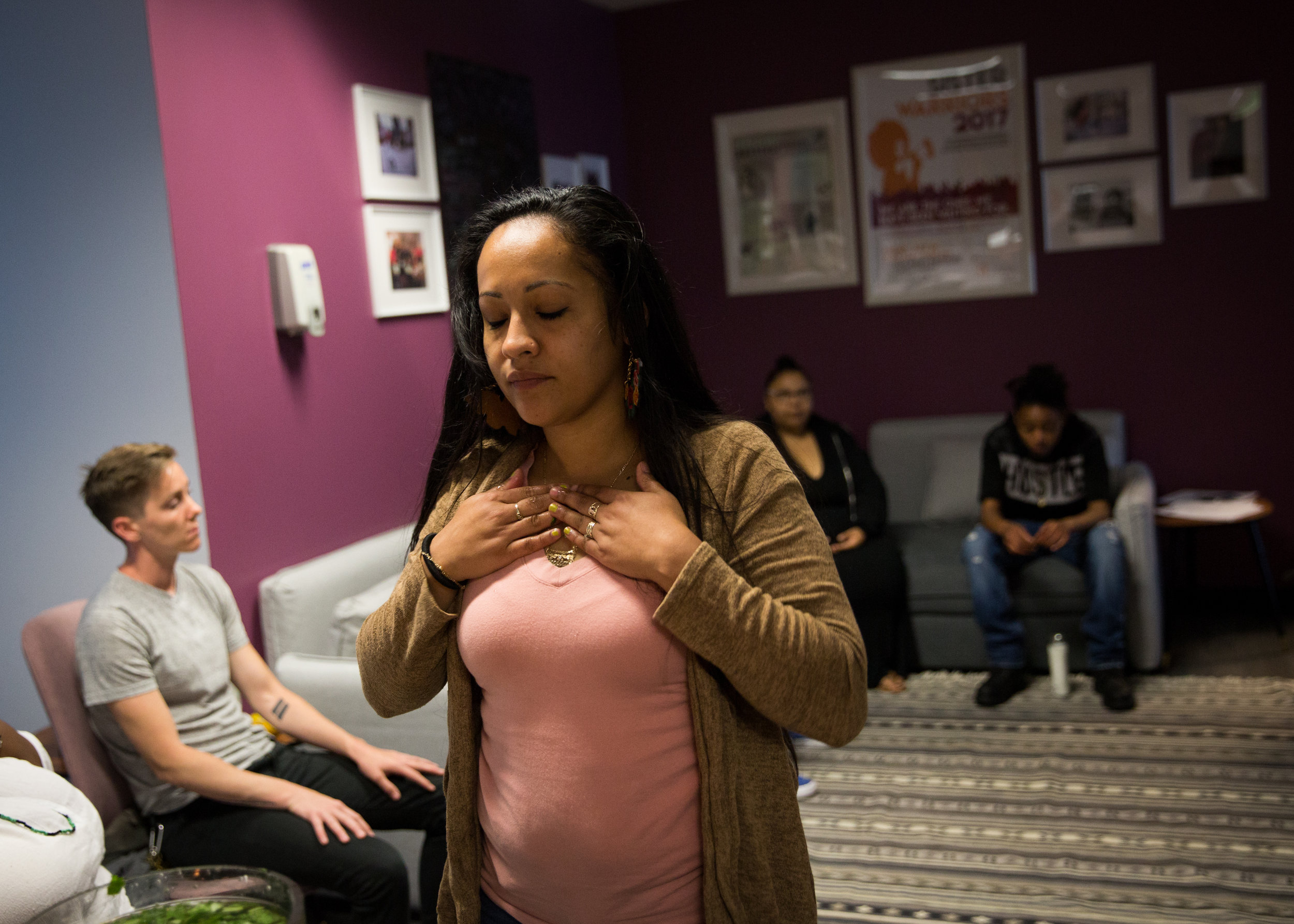
Julia Arroyo touches her chest with omiero, an herbal wash that is used for cleansing and blessing, during monthly ritual at the Young Women’s Freedom Center in San Francisco. The center was founded in 1993 and works primarily with young women and non-binary people of color who have been incarcerated, in the foster care system, or involved in the underground street economy. Nearly all of the staff members are alumni of the center's programs and come from similar backgrounds to the young people they work with.
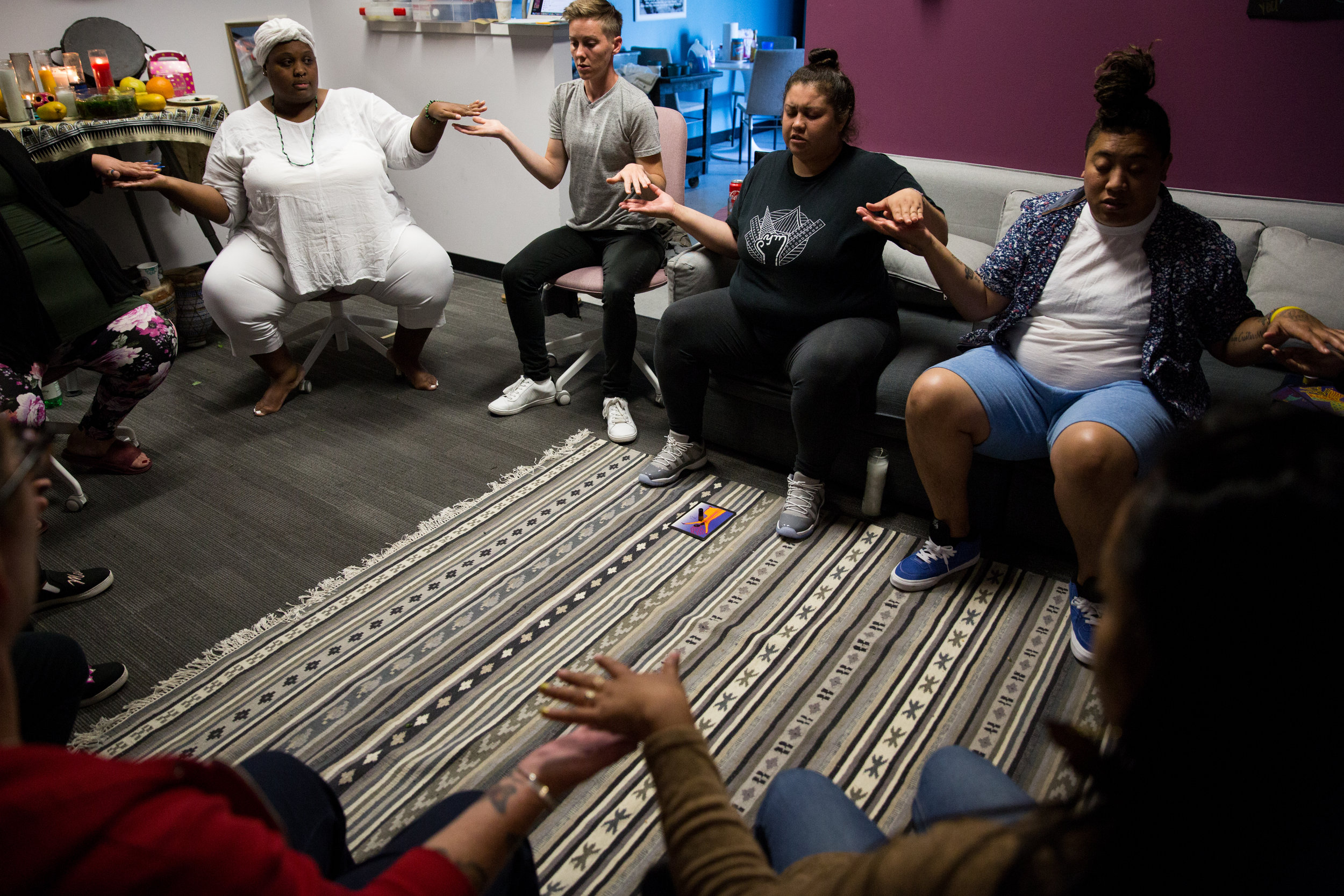
The Young Women's Freedom Center is founded on four pillars: sisterhood, social justice, self determination, and spirituality. While the center isn't a religious organization, its members participate in spiritual activities like their monthly ritual for personal healing, connecting with others, and reconnecting with their cultures. Julia has spent a lot of time coping with her experiences through therapy and finds solace in using more traditional methods of healing.
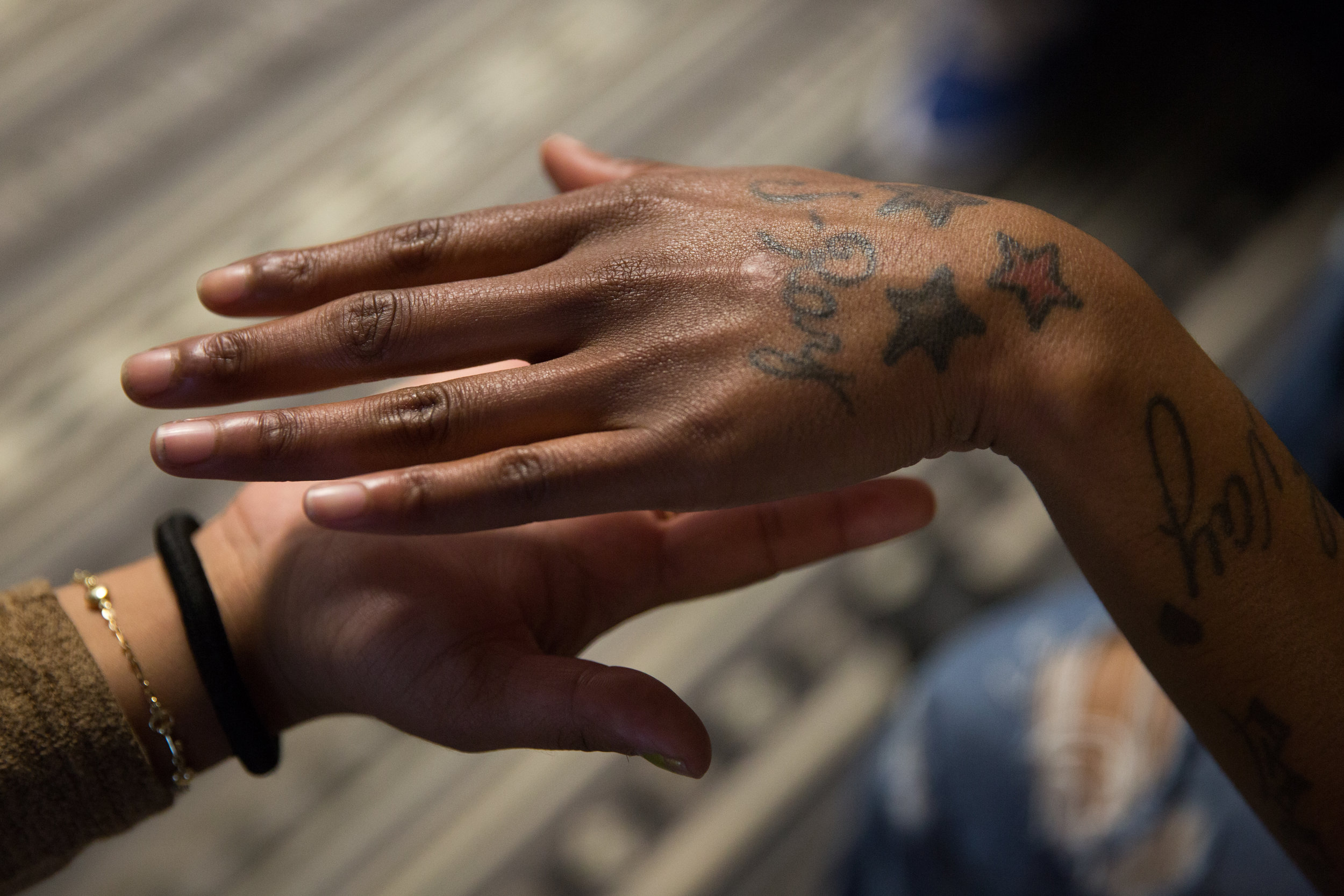
Vale Segi and Julia Arroyo hold their hands together during monthly ritual. "Throughout 25 years there's always a few things that young women say when they come. One is 'I don't get along with other girls,'" said Jessica Nolan, the executive director of the center. Nolan says that spirituality has helped many young women to overcome differences and get along with others at the center.
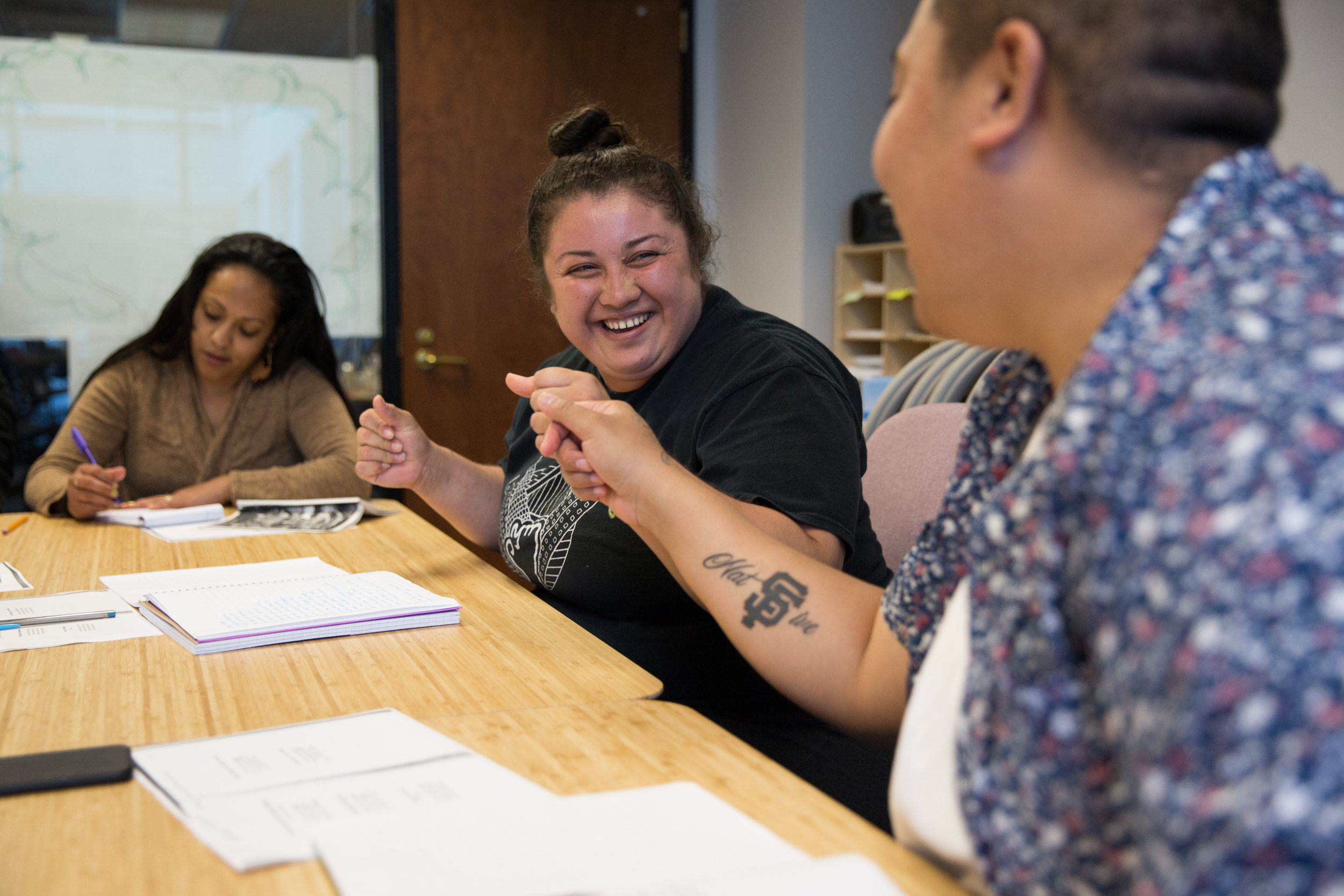
Lucero Herrera, left, and K.I. Ifopo fist bump after Lucero read her poem out loud during a Writing to Power workshop. Many of the staff members knew each other before coming to the center, like Lucero and K.I. who were incarcerated together, and have continued to build a bond through their work. "It's like special magic goes on in this place because of the people that are here. We create our own kind of love and our own kind of care for each other," K.I. said.
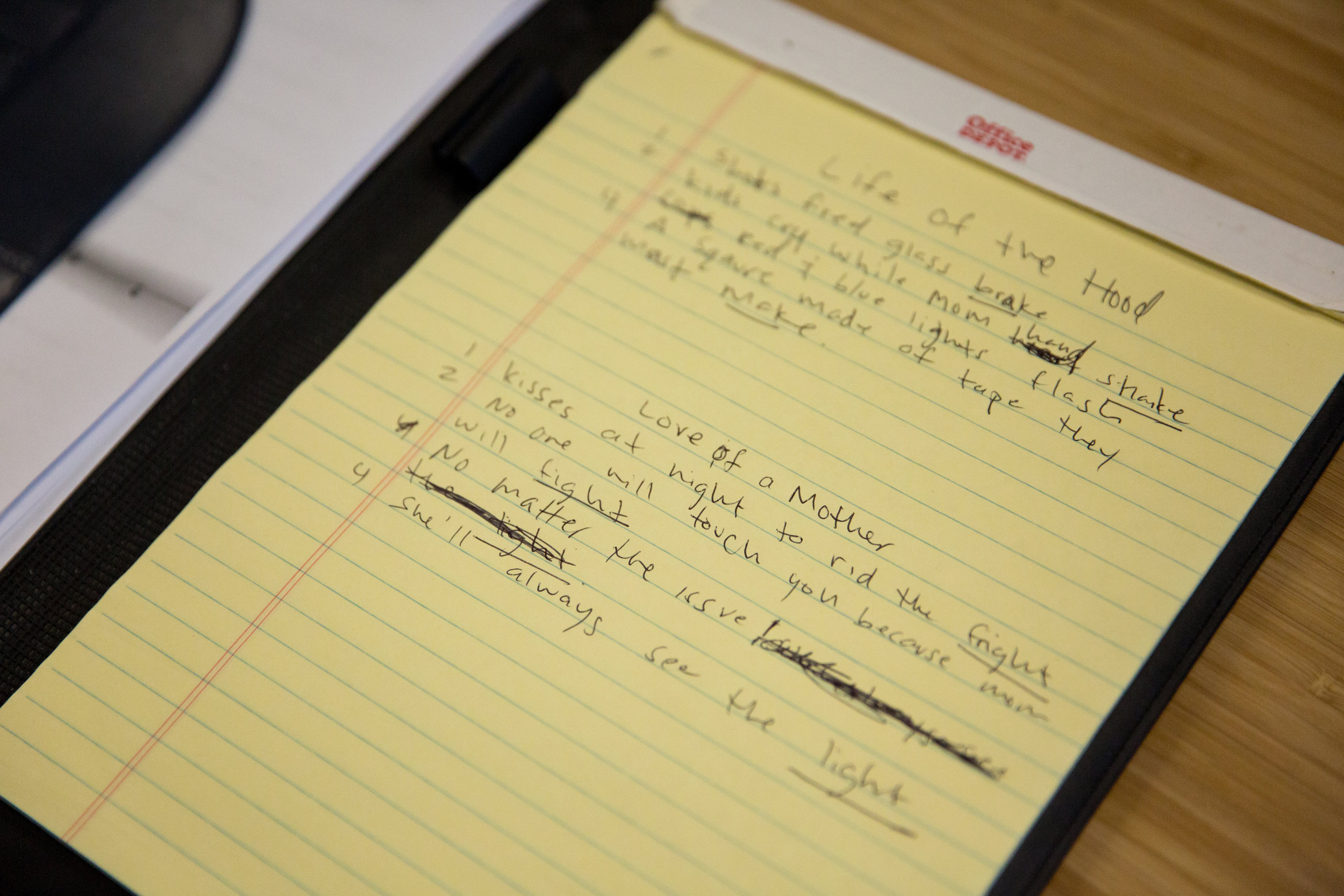
A poem by Vale Segi fills the page of a notebook during a Writing for Power workshop. Staff members participate in the workshop in order to be able to articulate their experiences in different ways and harness their inner power through writing. The center uses many different methods to help the young people they work with to realize their potential. Julia says that she was passed up for many jobs that she applied to before the center because she lacked confidence. "For some reason the center saw the passion that I had and they just gave me an opportunity. I think they really did help me out with that confidence and to know that I have the ability to do whatever I want. You know, I have that ability and power," Julia said.
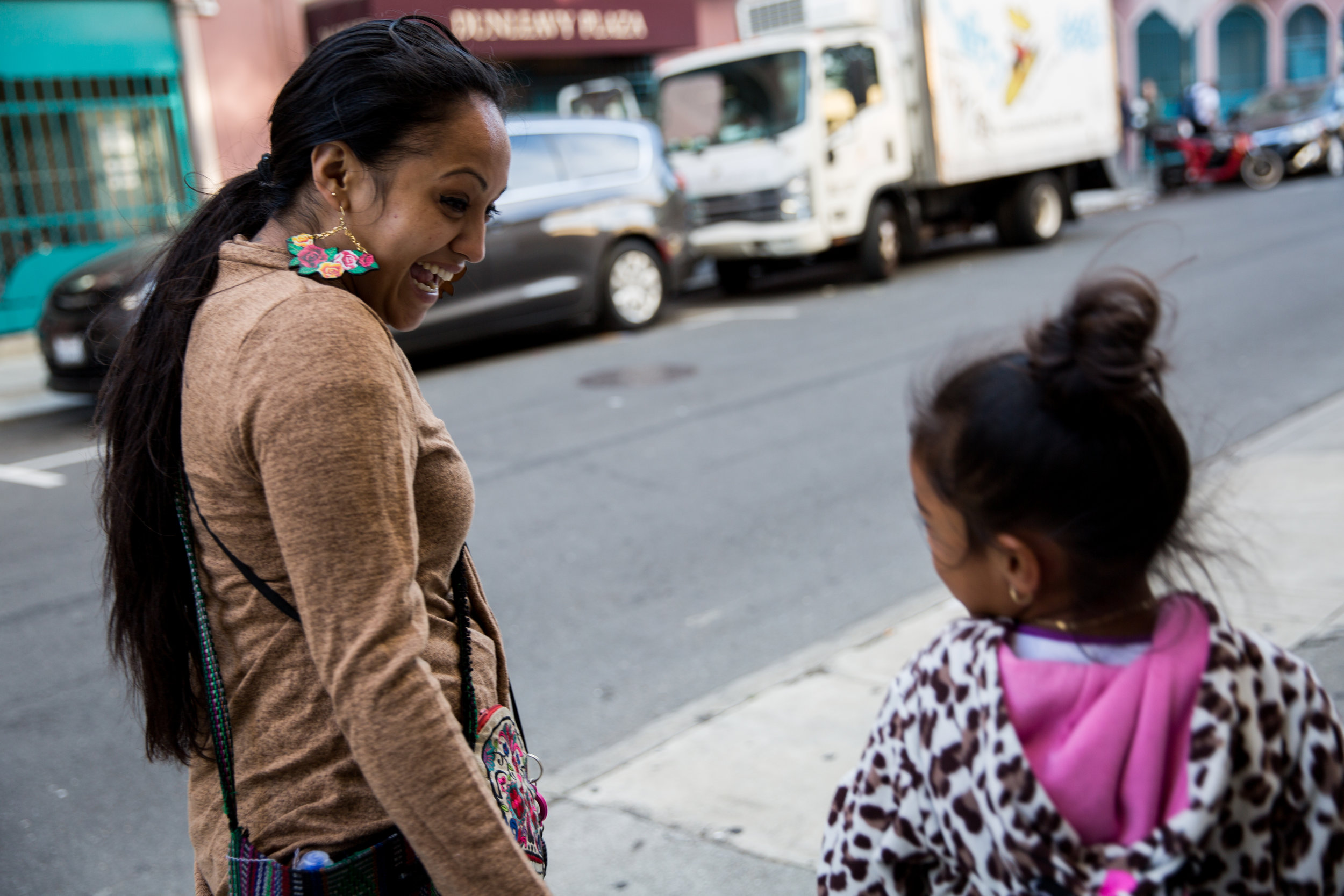
Julia Arroyo walks to the park with her daughter Guillermina, who she calls Baby G, after picking her up from school, where it was pajama day. Julia's daughter was one of the driving forces that helped her push herself to become the version of herself that she wanted to be.
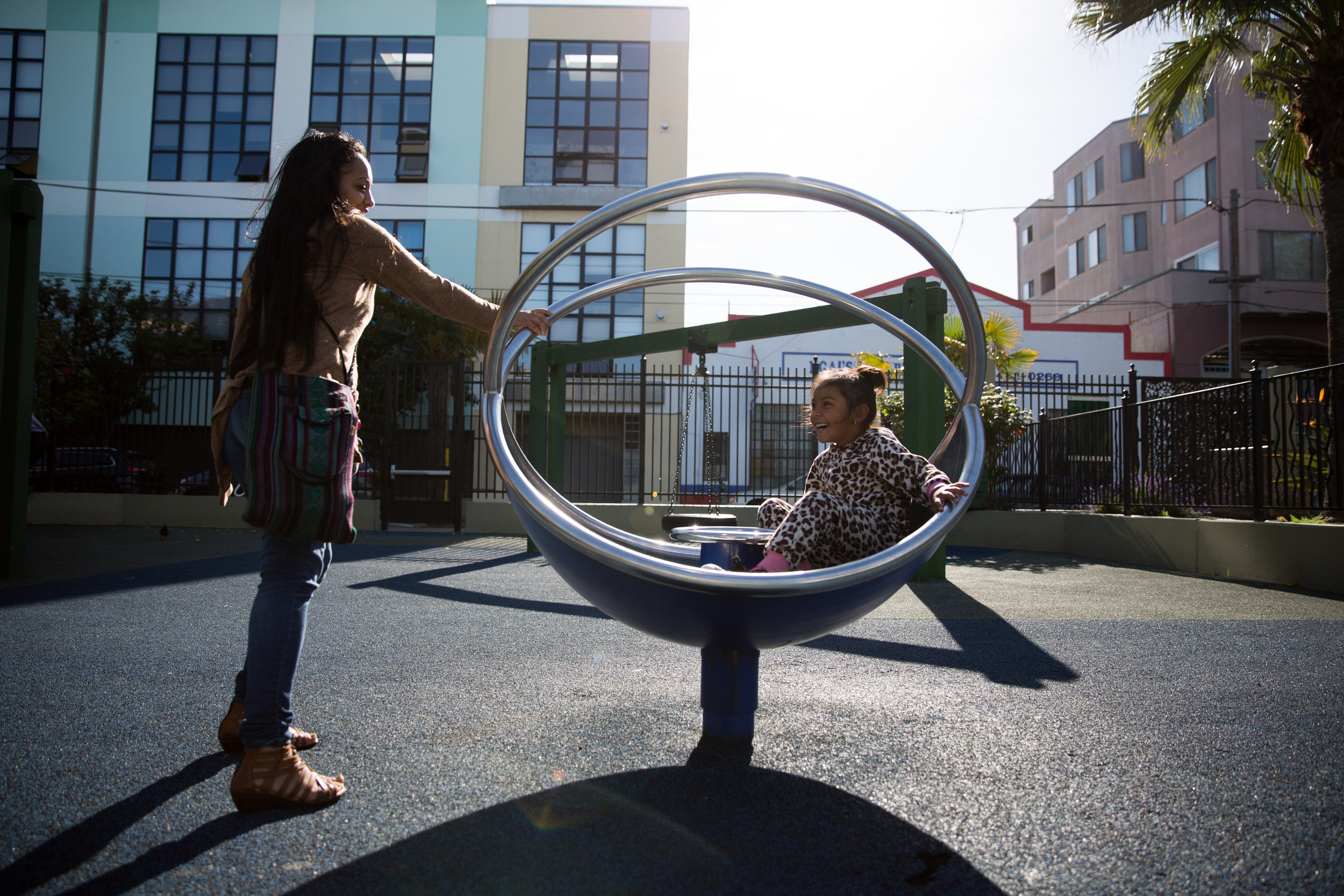
Julia and Guillermina play at the park near Guillermina's school. Julia has been taking classes at San Francisco City College after work, but decided to take the summer off, which has given her more time to spend with her daughter. She says that Guillermina asks her every day who is picking her up from school despite knowing that it will be her mom and is always excited at the response.
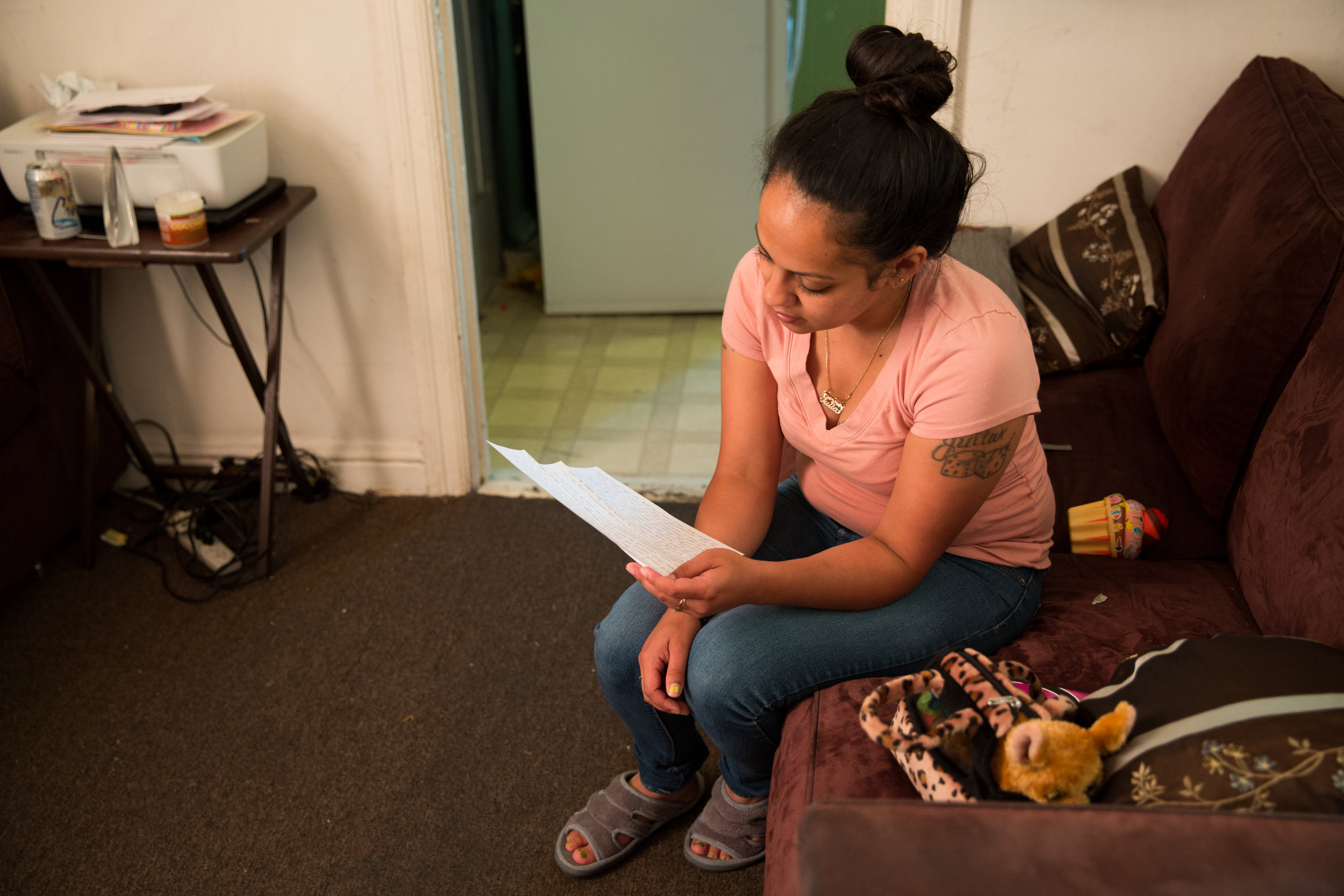
Julia reads a letter from her husband, Freddy, who has been incarcerated for the past five years. Julia says that her husband is a good dad to their daughter, "he has a lot of love for her and he's been able to parent from the inside also." Julia also appreciates her co-workers' ability to relate to her experience with her husband. "I don't think anybody would quite understand that at any other job."
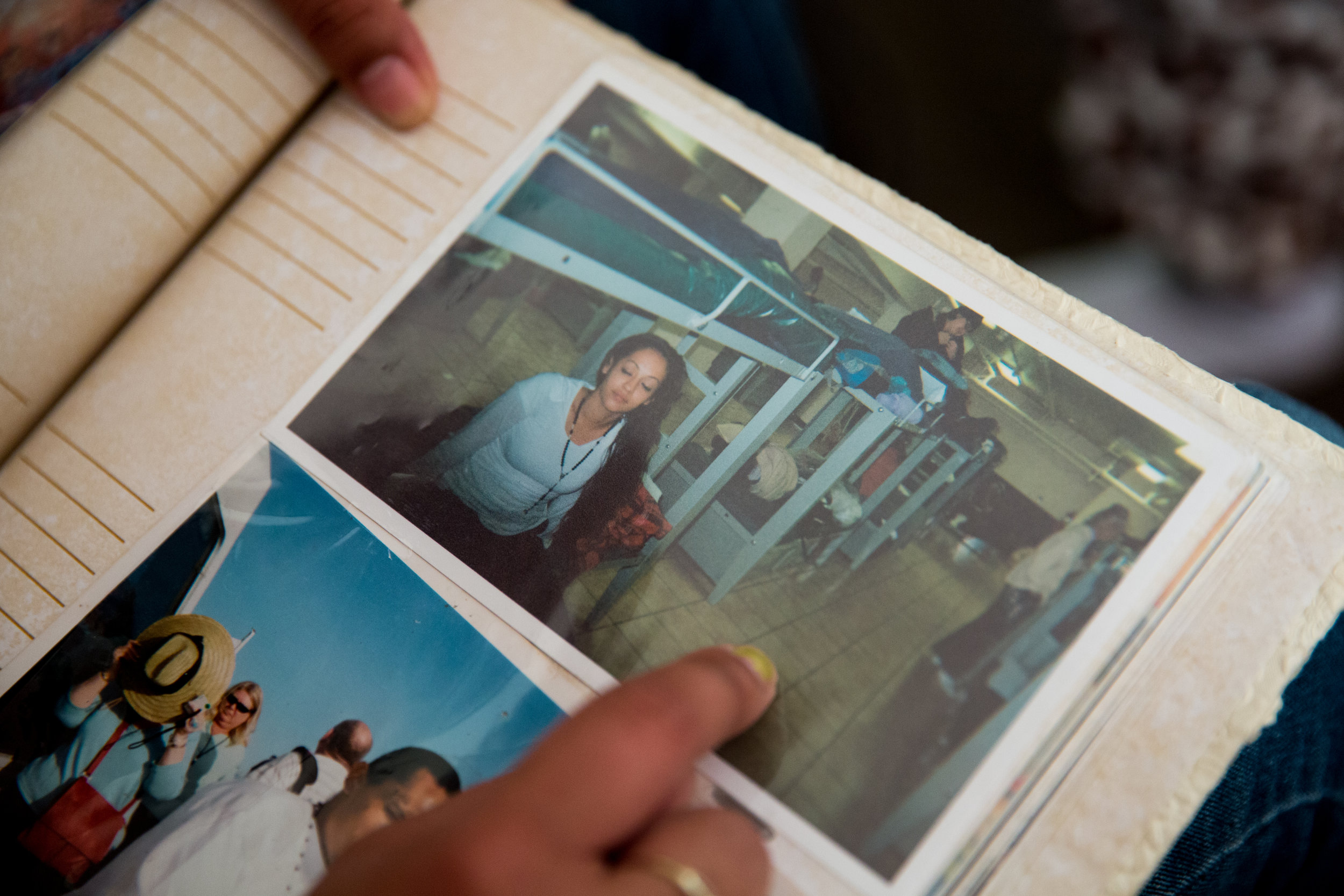
Julia points to a photo of her at a homeless shelter where she stayed at beginning of her pregnancy. Many people in Julia's family have had their children taken away and put into foster care, and she wanted to break that cycle. Julia took prenatal classes and found a lot of support and resources through the center. "They helped me to celebrate along the way and helped me to feel like I had tools that I needed and helped me to build community of other moms."
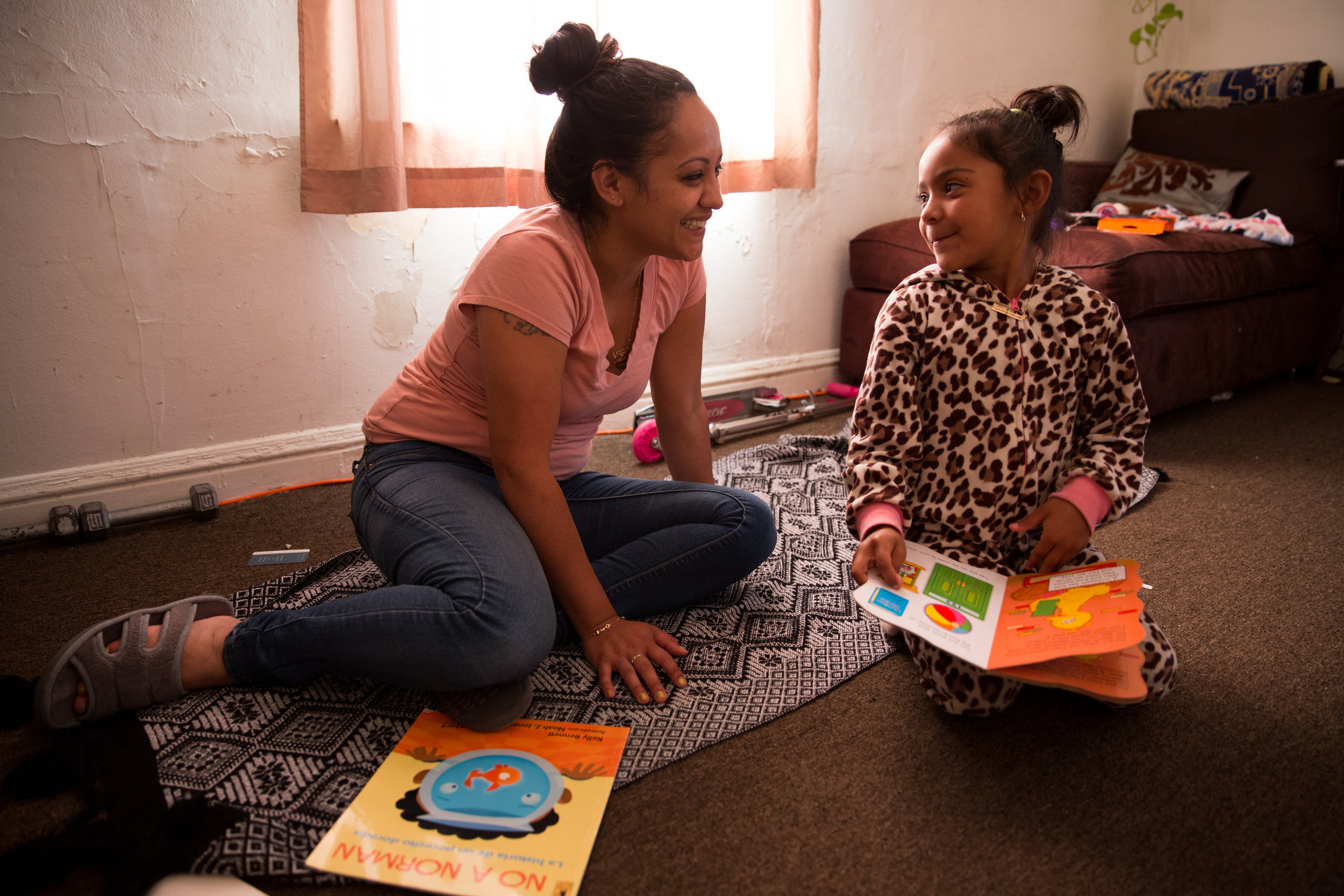
Guillermina reads a series of books to her mom after getting home for the day. Julia doesn't speak Spanish and wanted her daughter to have a second language, so she enrolled her in an immersion school. Guillermina was frustrated that she had only learned to read in Spanish at school, so she taught herself how to read English.
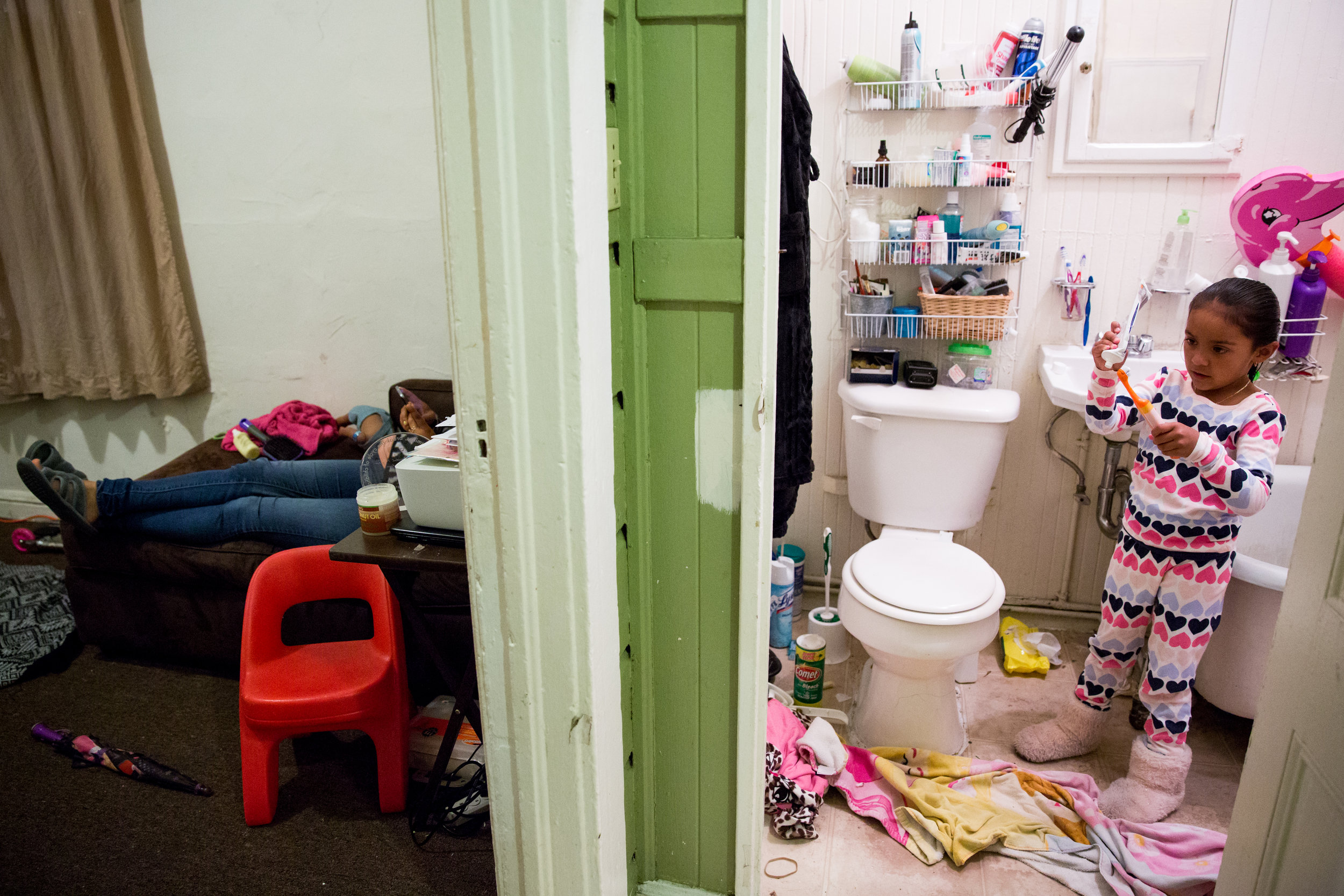
Julia relaxes on the couch while Guillermina brushes her teeth before bed. It has been just the two of them for most of Guillermina's life, and Julia says she has learned to become self sufficient in many ways.
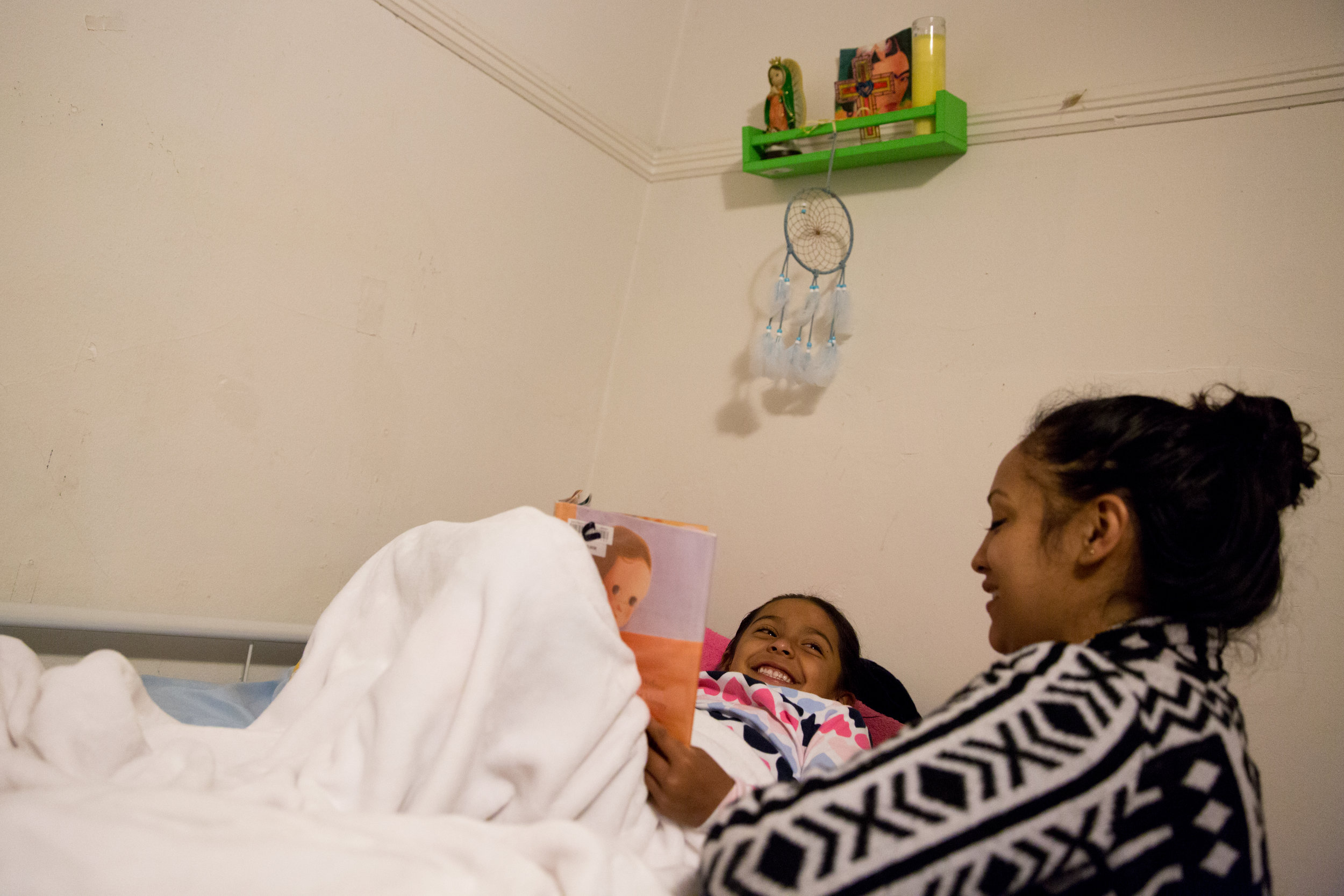
Guillermina laughs as she tries to sneak in one more book before bed while Julia tries to tuck her in. Julia says that Guillermina is one of the best things in her life, and she really appreciates the time she gets to spend with her daughter. "We're like peas in a pod. She's amazing, and I feel really confident and blessed to be her mom."











